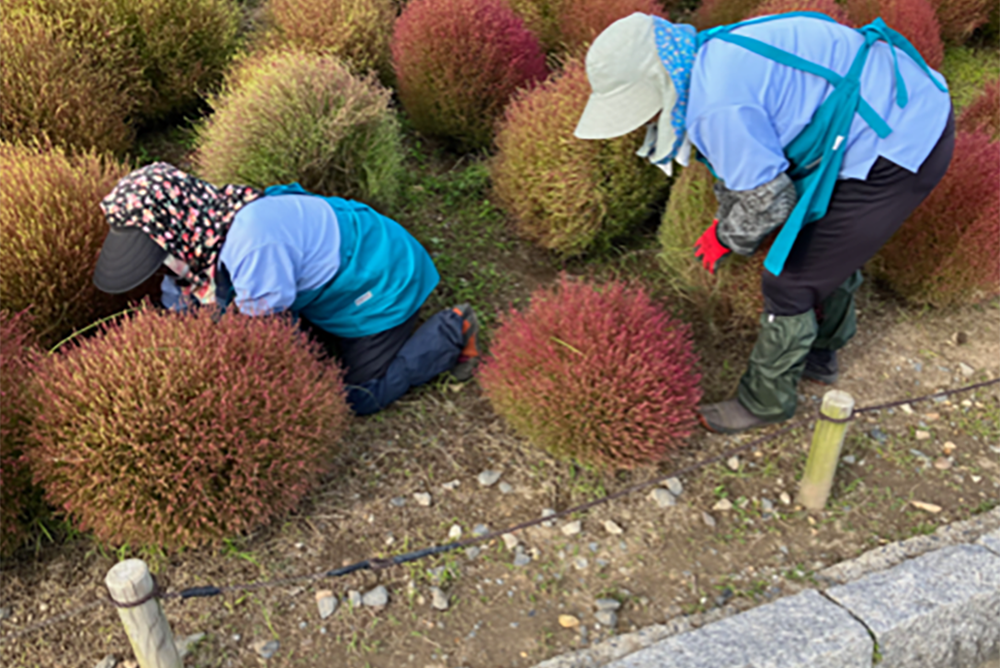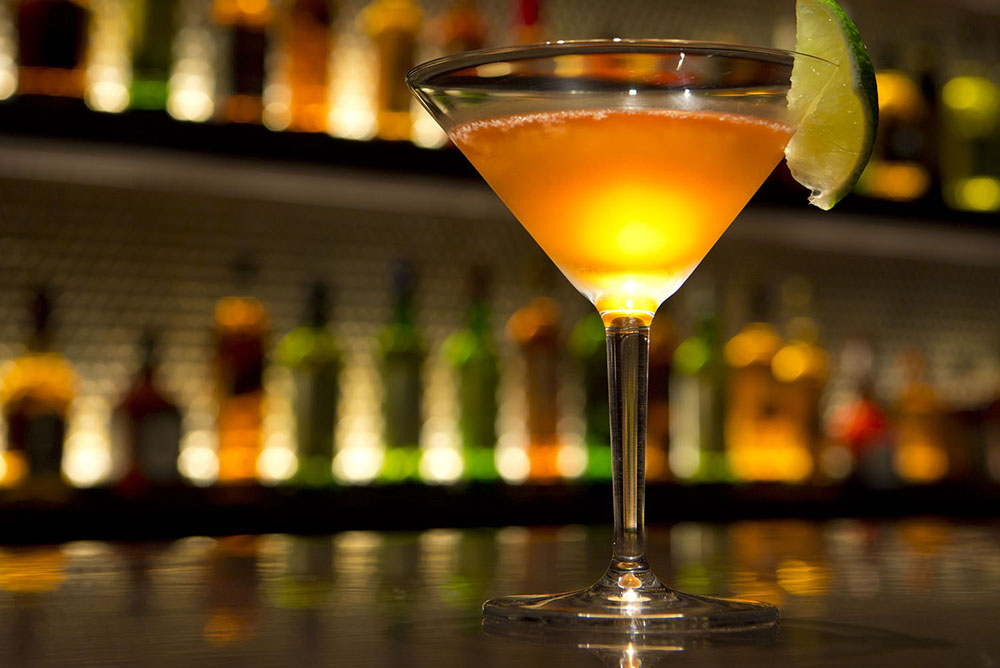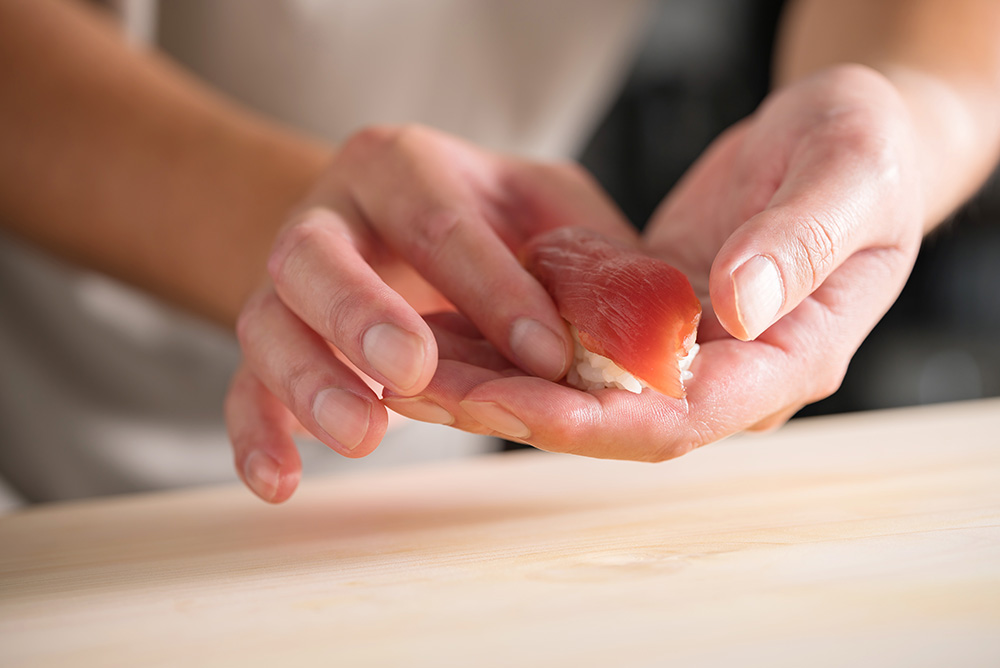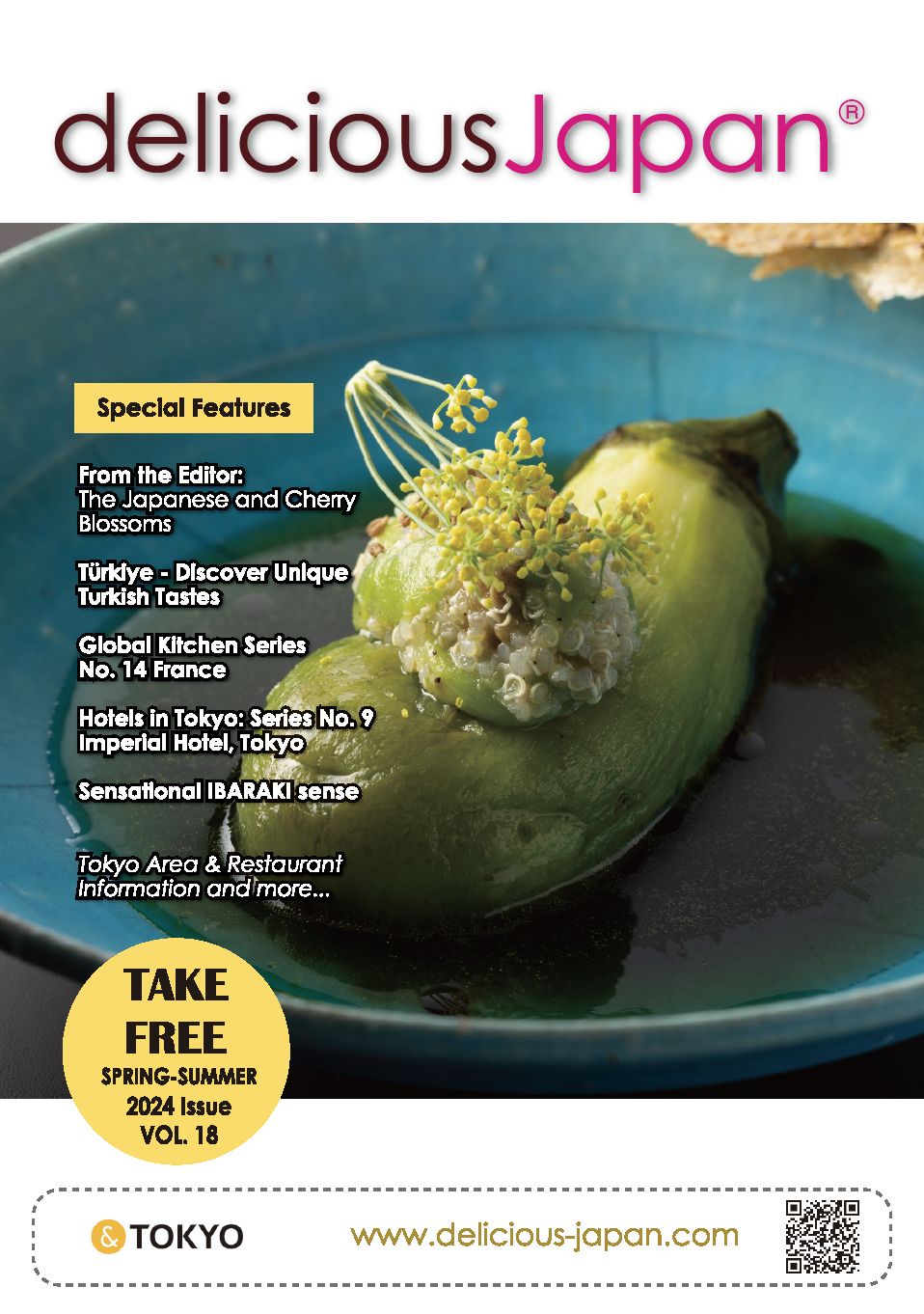Hospitality Means Cooking with Passion and Wishing for the Joy of those Who Enjoy that Meal
 Yuji Tokita
Yuji TokitaChef for Consul General
Consulate-General of Japan in Istanbul
I began as a part-timer at an izakaya named Watami in Amagasaki when I was 18. After quitting my band at 27, I chose to pursue this seriously. Leaving the band and starting my career was tough; I faced judgment from peers who had already established themselves in the workforce. Motivated to prove myself, I committed to working hard in the culinary field to show them my capabilities.
What is the biggest challenge of cooking in Türkiye compared to your cooking experience in Japan?The freshness of fish is different from that in Japan because fish are prepared while still alive. The strong aroma of Turkish ingredients—especially aromatic vegetables such as onions and carrots—interferes with the flavor of the bonito broth. The onions also have a strong aroma and do not soften quickly, so I had a hard time initially. The flavor of the ingredients is so strong that it overpowers the broth, so I have to be very careful about balancing the taste and flavor. I sometimes need to parboil or drain the ingredients to release their flavor.
Conversely, what are the most fulfilling and enjoyable aspects of your position as Chef for Consul General?Experiencing unique opportunities, like cooking Japanese dishes with rare Turkish ingredients not found in Japan, organizing buffets for 400 guests, and hosting royal family banquets, is incredibly rewarding. As a cooking enthusiast, I am thrilled to be able to cook whatever I like in Türkiye, which has abundant ingredients.
Many Turkish people visit the Japanese Consulate-General in Istanbul, and I expect you will prepare and serve various dishes for them. Could you tell me about some dishes that are popular among Turkish individuals?Sushi and tempura are undoubtedly popular, yet other dishes, such as cream cheese tofu, Kyoto-style grilled lamb chops, Jerusalem artichoke ice cream, and lentil ice cream, have also gained favor.
How do you source ingredients in Türkiye? Do you go to farms or supermarkets?I usually don't go to farms; instead, I shop at markets or supermarkets. Observing quality ingredients in person is essential, which makes shopping perhaps even more important than cooking.
Turkish cuisine is often considered one of the world's three culinary greats. Please share your impressions after actually eating it in Türkiye.Compared to Japanese cuisine, it contains significantly more oil, leading to rapid weight gain if overconsumed. However, people in Japan value the harmony of flavors and salt levels! I particularly enjoy lahmajun, which I load with plenty of vegetables, add a squeeze of lemon to, and then roll up to eat.
Could you share your experience with creating new recipes and menus?I imagine the scenario, anticipate possible setbacks, and if it doesn’t work out, I adapt and try anew.
What is the essence of genuine hospitality for Chef Tokita?Meals frequently go unnoticed in our everyday lives, but for me, hospitality means cooking with passion and wishing for the joy of those who enjoy that meal. I aspire for them to treasure the experience as a comforting memory, leaving with a smile after their meal.
A Sample Dinner Menu for an Evening Event Party
Appetizer: Sukiyaki chawanmushi, Jerusalem artichoke soup
Soup: Yoshino soup with shrimp and turnip
Grilled food: Grilled sea bass with sesame seeds, mushrooms and cashew nuts
Cooked dish: Eggplant, duck meatballs, and soft-boiled egg with teriyaki sauce
Hassun (Hassun refers to 8 inches = approximately 24 cm)
A 24-cm square wooden tray with various seafood and seasonal mountain delicacies
Miso soup: Red miso soup
Rice: Rice mixed with dried horse mackerel and arugula pickled in soy sauce
Fruit jelly: Assortment of three seasonal fruits
Dessert: Jerusalem artichoke ice cream and matcha rice dumplings







Yuji Tokita
Chef for Consul General, Consulate-General of Japan in Istanbul
Profile
Thirty-nine years old, from Amagasaki, Hyogo, he enjoys fishing, gaming, and camping. At 18, he worked part-time at a restaurant while aspiring to be a musician. He joined a music agency and toured before retiring from band activities at 26. By 27, he had shifted his focus from music to cooking. At 29, he started learning the art of authentic Japanese cuisine under his current master in Osaka. At 31, he became a chef at the Consul General in Istanbul. He returned to Japan at 34 to enhance his skills at various restaurants and high-end Izakaya. At 37, he moved back to Istanbul, where he continues to reside.





